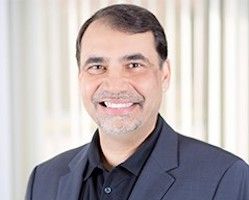Article
Take steps to prepare for PHRs
The era of personal health records (PHRs) has arrived and their use will only increase. Therefore, it behooves physicians to learn now what PHRs are, what they are not, and what impact they will have on their practices, said Kathy Giannangelo, RHIA, CCS, of the American Health Information Management Association in Chicago. "Results of a recent survey show that 42% of adults in the United States keep some form of a PHR, while 84% of those who don't currently keep one, think it would be a good idea. These statistics clearly point to the need for physicians to prepare themselves to exchange health information with their patients."
The era of personal health records (PHRs) has arrived and their use will only increase. Therefore, it behooves physicians to learn now what PHRs are, what they are not, and what impact they will have on their practices, said Kathy Giannangelo, RHIA, CCS, of the American Health Information Management Association in Chicago. "Results of a recent survey show that 42% of adults in the United States keep some form of a PHR, while 84% of those who don't currently keep one, think it would be a good idea. These statistics clearly point to the need for physicians to prepare themselves to exchange health information with their patients."
The PHR is a portable resource of health information owned and managed by the patient. It can be electronic, but is not the same as an electronic medical record, and it does not replace the providers' legal medical record. As a lifelong record for a patient, it contains information that can optimize health care decisions.
"PHRs can help avoid medication errors, avoid duplication of care, and enable monitoring of patients with chronic or multiple medical conditions," explained Giannagnelo. As patients come in with requests for data to use in their PHR, physicians should be mindful of what the patients want to do with the information and what format they intend to use to keep their PHR. In addition, they should remember that privacy concerns are foremost in their patients? minds.
Physicians should also be prepared for PHRs to change the dynamics of practice for themselves and their office staff. Physicians can anticipate spending more time reviewing the data contained in a PHR, but also in face-to-face discussions as patients feel empowered to ask questions they may have never asked before.





